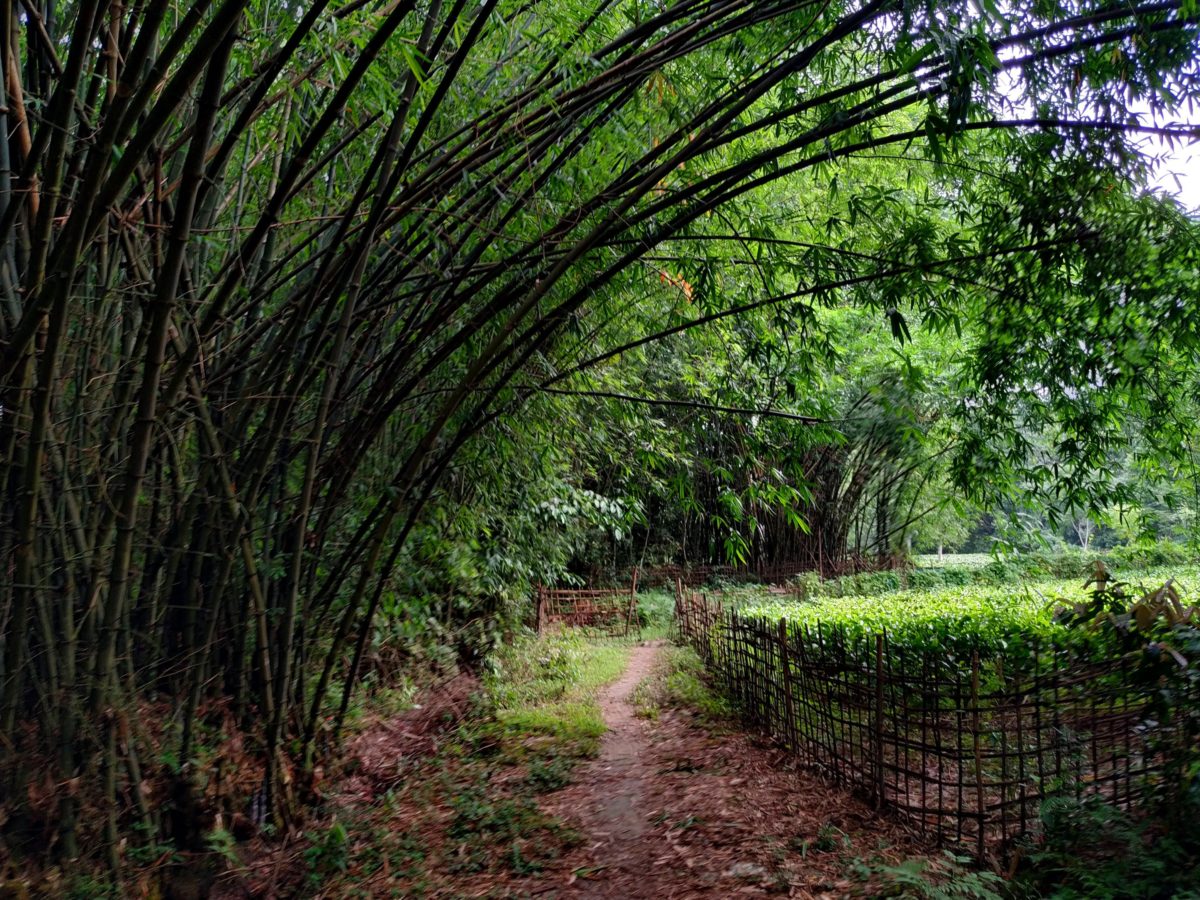
The tea samples arrived with utterly unfamiliar names: Latumoni, Koliapani, Mandal Gaon, Pareng ― not a single marquis estate. Yet all were standouts. Every cup was supremely memorable.
The teas were from Assam, sent by TheTea Leaf Theory, a company founded by Upamanyu Borkakoty and Anshuman Bharali to promote small farmers. Their website explains that handcrafted teas are available in limited volume. Online reviews by Tea Epicure and The Lazy Literatus are extravagant in their praise. Yet, there’s little known about the brand or the duo running it.
Borkakoty and Bharali are childhood friends, born and raised in Assam. Both left home to study in Delhi. Both stayed on to work in Delhi, Borkakoty in Marketing, and Bharali in finance. Bharali returned to Assam first to expand his family’s optical business with a lens making company. In 2014, Borkakoty decided to join him.
Tea was something the two often talked about, says Borkakoty. On a trip home, he met a small farmer trying to sell his green tea packets to a retail store. He bought some, which got him thinking about the potential opportunity to work with small tea farmers. Now, back in Assam, he and Bharali decided to travel the length and breadth of Assam in search of small tea growers. “We thought we would have a dedicated online store for tea grown naturally and sustainably in small farms,” Borkakoty explains. By 2016 they had gone beyond Assam, to Meghalaya, Darjeeling, and Arunachal Pradesh, to India’s eastern borders. The following year, they traveled through Mizoram, in search of wild teas and small tea growers.
It was clear that tea would be their future, and the duo closed the optical lens business. It was the start of Tea Leaf Theory.
The challenges and opportunities with small farmers
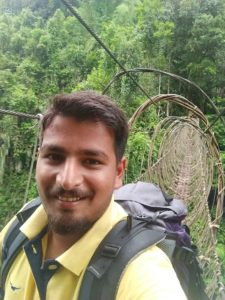
Small tea farmers make up the famously unorganized sector of India’s tea industry. Assam alone has more than 50,000 growers cultivating plots as small as kitchen gardens with a growing number spanning 25 acres (10 hectares). The working model was for small farmers to grow tea, pluck, and sell the green leaves to the bought leaf factories or large estates. Since plucked leaves have a short shelf life, generally four hours, farmers can’t afford to be choosy when approaching buyers.
Their travels offered several insights:
- Most small tea farmers could ill afford certifications, which limited their price and access to the more lucrative artisan market.
- Tea tasting was a skill that farmers didn’t possess, which held them back from learning to manufacture quality tea.
- As the number of farmers increased – and it has been growing over the years – so too has competition.
- Small farmers attempting to manufacture, chose to make green tea as black tea requires more skill, more expensive equipment, and experience.
Together they saw that there was almost no craft tea or specialty tea production in Assam.
A fortuitous meeting with Ramen Gogoi from the century-old Tocklai Tea Research Institute (TRA) led to one more critical insight.
Gogoi, who Borkakoty has dubbed his “guru,” shared a few green tea samples from Japan and China. Using these as a benchmark, the new partners recognized that the green tea produced in Assam’s factories did not even reach the threshold of mediocre.
“We had the toughest job on hand, as we set out to organize an unorganized market, set a standard for teas keeping marketability in mind, and also produce tea with distinct tasting profiles,” says Upamanyu.
The Beginnings of an Experiment
In Koliapani village, in Sivasagar district, Borkakoty met Rebo Gogoi, a retired school teacher, and tea farmer. In the 1990s, when tea planting rules became liberal, many Assamese began cultivating small plots. Gogoi, who had inherited 2.5 hectares of land from his father, collected tea seeds from a forest in neighboring Nagaland to plant on his farm. Nagaland, like part of the northeast of India, is home to the ancient tea trees.
As the bushes grew, Gogoi began selling green leaves to a nearby estate. The garden continued in this manner until Gogoi’s sons, Rana and Sanku, decided to join their dad. They decided plucking leaves for sale to the nearest bought leaf factory, or the nearby estate was no longer working. Often their leaves were rejected, forcing the Gogois to dump the lot in a nearby drain and return home empty-handed. They didn’t have the knowledge to process the leaves.
In 2015, Borkakoty and Bharali met the Gogois, and they decided to collaborate. The brothers set up a micro-factory, which became the Tea Leaf Theory’s first experimental station. For the first year, they experimented in withering durations, oxidation levels, rolling styles.
In 2016, Sailen Phukan from Latumoni village, in Dibrugarh district, got in touch with Tea Leaf Theory. He, too, began growing tea in the 90s. Prices dropped radically in the past five years, falling from INRs18/kg for green leaf in the early 90s to INRs2 per kg by the end of the decade. Supply exceeded demand, and the tragedy was smallholders who mostly practiced monoculture had no fallback. To bring in income, Sailen became a distributor for Amway products. It was while promoting their organic supplement, Nutrilite, that he was attracted to the idea of organic farming.
He decided to adopt traditional cultivation techniques, giving up the use of chemicals and fertilizers. By 2010, Sailen had switched entirely to natural cultivation and decided that he didn’t need expensive machinery to make teas. By 2013, he was selling pan-fired green tea to customers in nearby villages. When he met Borkakoty and Bharali, he shared his experience and was eager to experiment further. Tea Theory’s second experimental station would be at Latumoni.
Says Borkakoty, “In the last year and a half, we have been able to produce two very rare green teas never made in Assam, besides the flat pressed, pan-fired greens.”
The third experimental station was in Darjeeling at Mandal Gaon village, where Buddha Singh grew tea on his small farm, resolutely following natural cultivation. In the late 90s, he converted his land from food crops to tea. When he met Tea Leaf Theory, he was keen to experiment with specialty tea.
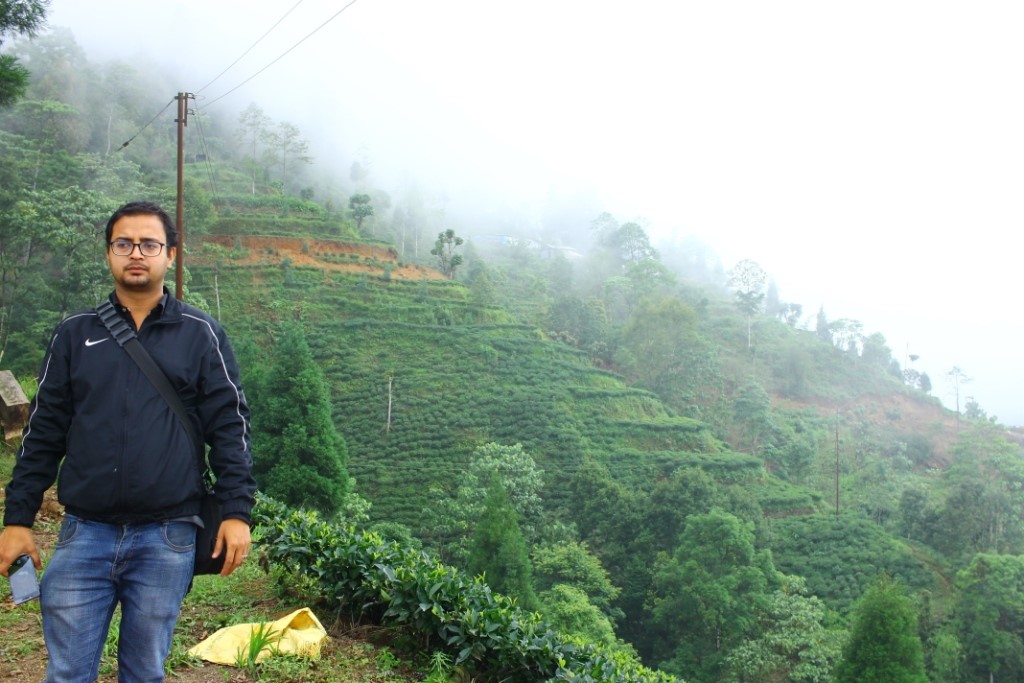
During this period, Borkakoty and Bharali traveled to China, returning with many, many samples of tea, convinced that tea making was about craftsmanship. The trip also reaffirmed to the duo that retail was not the way forward for The Tea Leaf Theory. They settled on wholesale only. Their focus, they were clear now, was to continue experimenting with tea, towards creating handcrafted, specialty tea.
The three experimental stations each produce exceptional teas. Orders from small boutiques and retailers in the west made The Tea Leaf Theory an online platform connecting small artisan farmers with a niche clientele.
Choosing wholesale over retail, artisan over mass
This was also a time when new retail tea brands were coming up in India, with investments running into millions of dollars. The Tea Leaf Theory remained stubbornly bootstrapped and focused on wholesale. Says Borkakoty, their vision was to bring greater benefit to their farmers by offering higher sales volume while keeping quality front and center.
“Why should we compete with retail brands?” he asks. “We are at the source, and if we are selling tea, it has to be the tea that people are talking about, that offers exceptional value.”
Few people are doing this in India — one that comes to mind is Tea Studio in the Nilgiris. When you look at the small tea growers and bought leaf factories across India, and particularly in Assam, most produce black CTC (cut, tear, curl) tea. As a result, India’s tea industry is weighed down by its production vs. price conundrum with no respite in sight. There’s a bifurcation with large estates on one side, and small farmers and bought-leaf factories on the other. Neither model is sustainable at the moment, but both contribute equally to production volumes. If small farmers can be empowered and trained to become tea makers themselves, the results can be extraordinary. The idea of bringing new production insights into old techniques and crafting tea could transform this segment of the tea industry!
This is evident in The Tea Leaf Theory’s teas, a selection of limited volume, handcrafted, naturally-grown, teas. One of their best selling teas until recently was the falap, a fermented and aged tea cake that draws parallels to pu-erh. The falap is from villages deep inside Nagaland and Arunachal Pradesh, where ancient tribes still produce it in old ways. Secrets of making it are held close. Borkakoty says he respects that. It’s the same principles he offers his tea makers. Every farmer with his experimental station has his secrets, and that’s their USP (unique sales proposition).
“We have been able to learn because we didn’t have to unlearn anything,” says Borkakoty.
Empowering farmers, encouraging innovation
Forests on all sides act as a blanket, keeping some of the most destructive pests away from the tea plants that cover Koliapani. On a small patch on both Koliapani and Latumoni, wild tea plants are left to grow unpruned. In two years’ time, these will be full-grown tea trees. The tea bush and arbor tree result in flavor profiles, something more complex than the bush can ever match, says Borkakoty. The Tea Leaf Theory intends to buy or lease small unviable farms to convert to tea forests that preserve the ancient trees, maintain a natural way of growing and making tea, and push the small farmers to innovate continuously.
Their farmers are doing well. The Tea Leaf Theory has reduced their rejection rate from 70% to 2%. What’s more, they can offer financial support to farmers who are willing to experiment and work with them. At present, they onboard two farmers a year. The conditions to enroll require that:
- Farmers who have not always followed natural cultivation must agree to a conversion period of at least four years from inorganic to natural
- Farmers should be passionate about producing high quality and extraordinary tea.
- Farmers must demonstrate a willingness to experiment with manufacturing techniques.
Borkakoty says that farmers “must come back to us at least twice with some results, be it positive or negative. This serves as a screening test to gauge their interest. We are on a continuous hunt for talented tea makers and not followers.
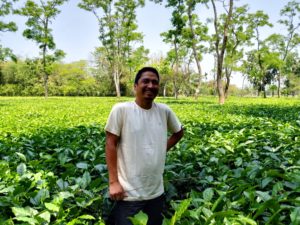
The farmers are tasked with focusing on production while Tea Leaf Theory takes on the onus of selling the teas. Their rates are better, and Borkakoty says they can pay 50% rates for any unsold tea. In 2019, they sold 700 kgs from Koliapani, 800 kgs of Latumoni, and about 400 kgs from Mandal Gaon. This year there are new farmers have from Naharaku and Kathaldanga in Assam and Pareng in Arunachal Pradesh.
Their offerings currently are mostly black tea with maybe 15% green teas. Experimental oolongs from Darjeeling and Assam are underway and should debut soon. Perhaps we will finally see an exceptional Indian oolong that can stand up to a Formosa or Wuyi.
“We do things that are difficult,” says Borkakoty, with justifiable pride. In a first for Indian black teas, The Tea Leaf Theory’s black teas are priced higher than the white tea.
The Tea Leaf Theory team is very, very lean with the two co-founders and two office staff. Choosing to remain independent, bootstrapped, refusing certifications, they represent a new kind of startup, modern yet rooted in something traditional, ancient even. There’s the social impact here, but Borkakoty insists that Tea Leaf Theory is not an NGO working for small farmers. “I want to make them entrepreneurs, not beneficiaries,” he says.
Innovations and experiments seem to be The Tea Leaf Theory’s way of tea. “We are diverting our energies towards the future of tea production and clever brewing technologies,” says Borkakoty, hinting at what’s in the works. The Tea Leaf Theory, sustainable so far, is finally opening to investments to support their extensive and wonderful dreams for tea.
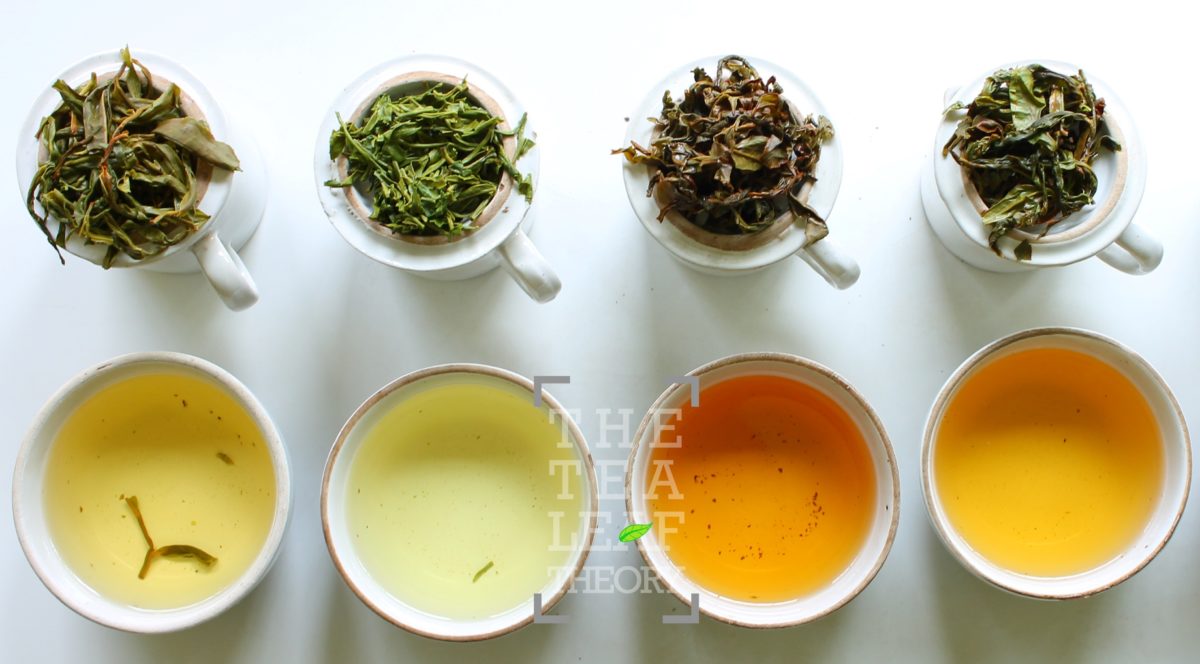
Tea Market
Get More Value from Your Tea: BRU Maker One
+41794574278
Jacque's Organics
(647) 804-7263
What an absolutely wonderful write-up.
It being obvious that we share synergy and are on the same page as them, am going to reach out to Upamanyu Borkakoty and Anshuman Bharali.
Thanks, Indi! Yes, it’s great to see the rise of artisanal teas in the work you do at Tea Studio, that Upamanyu and Anshuman have done with The Tea Leaf Theory. We are the lucky ones, who enjoy the results of all your hard work!
Loved going through the article and more so because Upamanyu was one of my most favourite student, intelligent , Academics oriented and extremely polite boy. I am so happy to read about his venture and efforts he is putting in for popularizing small tea farmers.Encouraging youths in taking up small level tea cultivation would strengthen the backbone of our economy and will also help to tackle the problem of unemployment.In the years to come with the effort and hard work of the duo Upamanyu and Ayushmaan, The Tea Leaf Theory will surely scale greater heights.
Thanks to the author for such a wonderful article. Kudos to the “The Tea Leaf Theory” team for doing this amazing job by helping the tea farmers to get what they deserve. I understand how much time and effort you must have invested for this project, but let me tell you this, great returns awaiting for your team soon. I wish all the very best to “The Tea Leaf Theory” team.
Inspiring story! Well done to the Tea Leaf Theory team and well done to Aravinda in writing about them and sharing their story so well. Great read! Thank you!
Try mritika… Pabhoi